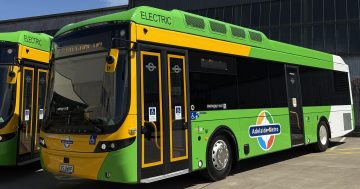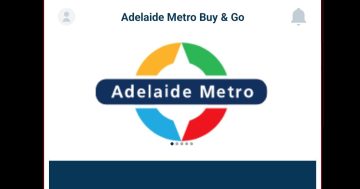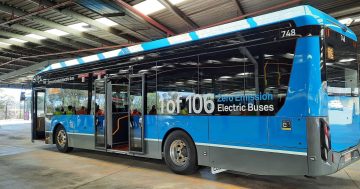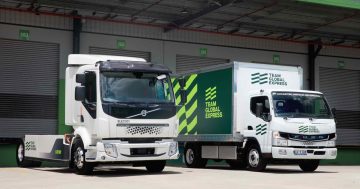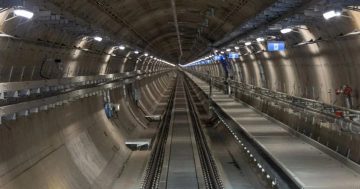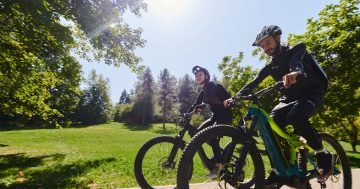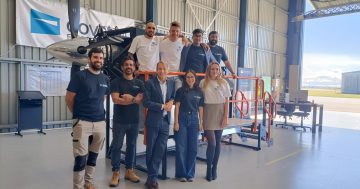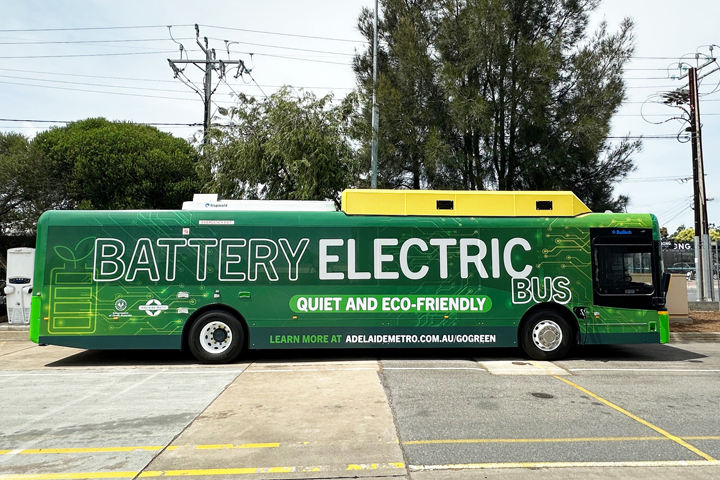
The electric buses will help with the government’s decarbonisation efforts. Photo: Adelaide Metro.
The South Australian Labor Government has ordered 60 new fully electric battery buses, appointing two global engineering firms to develop detailed plans towards the creation of a zero-emission passenger transport network.
The buses’ bodies are being built by Volgren, an Australian bus manufacturer with charging infrastructure under installation at the Morphetville depot.
The 60 vehicles, supplied by Scania, are to be delivered throughout the second half of this year and early next year. They will join the fleet’s single full battery-electric bus, which joined the network after a successful trial.
The government said the new buses would be better for the environment and comfortable for passengers by reducing noise and air pollution.
To assist in its goal of a fully decarbonised public transport system, the government has appointed two global engineering professional service companies, WSP and Mott MacDonald, which have experience in aiding government energy transitions.
“Decarbonising the transport network is such an important initiative, and we’re pleased to have been appointed by the South Australian Government to develop their zero-emission plan across the passenger rail network,” Mott MacDonald managing director Adrian Jones said.
“Globally, we’ve led efforts to decarbonise transport systems, driving progress towards a sustainable future.”
The firms will consolidate a large quantity of planning and feasibility analysis that the SA Government has already finished in order to create a business case for achieving the state’s zero-emissions transition across the public transport network.
The government has committed to an emissions reduction target of a minimum of 60 per cent of 2005 levels by the end of the decade and net zero by mid-century.
The largest single source of emissions in the state is transport, and the government’s transport system is a large component of that.
The move to electrify the train network comes after meetings held by Infrastructure and Transport Minister Tom Koutsantonis with important players in the rail transport industry at the world’s largest trade fair for transport tech. Mr Koutsantonis attended InnoTrans 2024 in Berlin, with discussions focused on the rollout of battery-electric trains across the state.
The Adelaide Metro fleet currently comprises more than 1000 vehicles powered by a mix of diesel, battery-electric, hybrid and natural gas systems. Two hydrogen buses are undergoing a trial. As of September 2022, there has been no new procurement of diesel-only vehicles, and all new vehicles must now be either diesel-electric hybrids or battery-electric.
The decarbonisation of the Adelaide Metro railway network is firmly underway, with the Gawler, Seaford and Flinders spur lines already featuring full electrification. However, the Outer Harbour, Belair, Grange and Port Dock spurs are operated by hybrid-diesel trains.
“We have already undertaken a significant body of groundwork towards decarbonisation of both the bus and passenger rail networks,” Mr Koutsantonis said.
“These new business cases will build upon this prior body of work to decarbonise the metropolitan bus network and the Outer Harbor and Belair Lines, as we work towards our commitment to upgrade our public transport system to zero emissions with cleaner, greener and more efficient technologies.”


